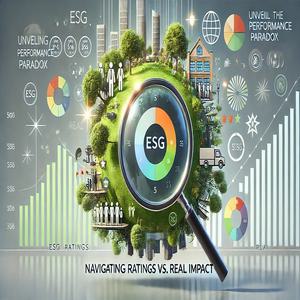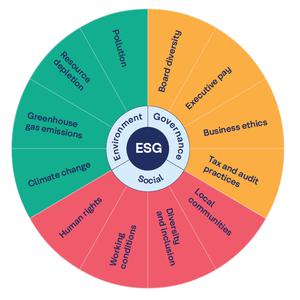As sustainability takes center stage in both corporate discussions and investment strategies, a key question remains: Can “going green” with ESG (Environmental, Social, Governance) investing genuinely lead to financial profits? For wealthy individuals dealing with the intricacies of today’s finance, distinguishing between truth and myth within the ESG realm is essential. Let's explore the detailed truths that shape this investment movement.
The ESG Performance Paradox
It is a common belief that firms with high ESG ratings are more successful over time. Research does indicate a link between eco-friendly practices and financial strength, yet the connection is not as clear as it appears. There are often hidden compromises: companies in renewable energy may excel in environmental ratings but could deal with regulatory challenges or sudden technological changes. For example, battery producers that depend on rare minerals may face supply chain issues that affect their profits, even if they are seen as environmentally friendly.

Additionally, differences in ESG ratings further complicate matters. Various rating organizations apply different standards, which results in inconsistencies. A business labeled as “ESG-friendly” by one organization might get a lower score from another. Wealthy investors need to look deeper than just the ratings and perform thorough investigations.
Uncovering Hidden Alpha in ESG
Aside from the conventional green industries, new ESG strategies reveal distinct opportunities. Impact investing focuses on businesses that are actively addressing social or environmental challenges, yielding both financial gains and significant positive effects. For instance, putting money into solutions for water scarcity in developing regions tackles a major global issue while taking advantage of the increasing demand. These specific investments often go unnoticed by mainstream ESG funds, giving savvy investors a chance to explore unexplored possibilities.

Additionally, governance-centered ESG offers a strong argument. Prioritizing corporate governance—like having diverse boards, promoting ethical leadership, and managing risks—helps to spot companies that are well-managed and more likely to thrive in the long run. Studies show that firms with diverse leadership typically perform better than their counterparts, highlighting governance as a powerful yet often overlooked aspect of ESG investing.
Navigating Regulatory and Geopolitical Headwinds
Investments focused on ESG (Environmental, Social, and Governance) are subject to outside influences. Changes in regulations can present serious threats. Governments across the globe are adopting new policies related to ESG, yet varying rules from one area to another create complications. For example, while a carbon tax in the European Union may benefit clean energy companies in that region, it could negatively impact businesses linked to carbon-heavy supply chains. Wealthy investors need to remain informed about shifting policies to better predict disruptions in the market.
Additionally, geopolitical tensions add to the challenges in the ESG field. Issues like trade conflicts, resource nationalism, and international rivalries can hinder sustainable supply chains. Investments in essential minerals for electric vehicles, for instance, may encounter geopolitical risks that depend on where mining occurs and any export limitations.
The Role of Active Management in ESG
The popularity of passive ESG funds has grown rapidly, yet active management stands out in this intricate field. Experienced portfolio managers are adept at maneuvering through the uncertainties of ESG, spotting undervalued assets and steering clear of greenwashing—when firms overstress their environmental claims. Additionally, active investors have the ability to communicate with companies, pushing for improved ESG practices and possibly uncovering hidden value.
ESG: A Long-Term Bet with Nuanced Returns
ESG investing may not promise quick profits, but it provides lasting strength and helps reduce risks over time. For wealthy investors who have varied portfolios and can handle intricate details, ESG goes beyond ethical choices; it serves as a smart way to adapt to a shifting world. By considering more than just the “green” label and acknowledging the complex aspects of ESG factors, investors can set themselves up for steady returns during a time when awareness of environmental and social issues is growing.


Investment Horizons for the Coming Decade

Digital Wallet Defense: NFT Theft Exposed

The Four Golden Rules of Options Trading: Precisely Grasping Market Pulse

Crafting Your Emergency Financial Fortress

Homeownership Vs. Renting

How Your Personal Credit Score Influences Your Life

Do you really know when to start investing in funds?
